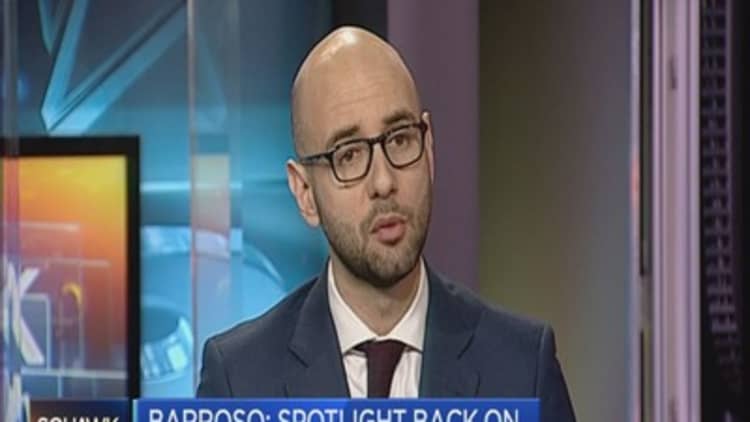A deal between Spain's center-right party Ciudadanos and the Socialist party could propel the latter's leader, Pedro Sanchez, to the role of prime minister next week.
Spain currently has a leadership vacuum following an inconclusive poll in December 2015.
The Popular Party, headed by acting leader Mariano Rajoy, took the most votes in that election but has failed in attempts to form a coalition.
The center-right Ciudadanos had talked with Rajoy but has instead chosen to form an alliance with his Socialist opponents.
"The agreement is intended for the vast majority of Spaniards, not for political parties," read a statement from Ciudadanos leader Albert Rivera on the party website.
Between them, the Socialists and Ciudadanos only command 130 seats of the 350-seat lower house.
And Sanchez will need further support to become prime minister in a confidence vote scheduled to take place on Wednesday, March 2.
"What we agreed we cannot do alone," said Rivera, urging other parties to join the alliance.
Economic effect
The inability to form a coalition has left Spain in political limbo, but has growth been affected?
The latest services PMI data from Spain paints a broadly positive picture but deeper analysis from Andrew Harker, senior economist at Markit tends to suggest a slowdown.
"Growth of activity slowed to the weakest in more than a year and business sentiment eased amid the first reports that the political stalemate in Spain had fed through to uncertainty in the economy," he said in a subsequent press release.
Since the beginning of the year the country's main equity index, the IBEX 35, is down more than 13 percent amid a wider sell-off in equities.
Over the same period, the yield on Spain's 10-year sovereign paper has remained steady at around 1.6 percent, suggesting little risk is being priced to the country.
But Antonio Barroso of Teneo Intelligence told CNBC Thursday it's clear investors don't like uncertainty and there was chatter of caution around Spain.
"These are isolated anecdotes so it is hard to really judge. But it seems there are some people withholding investments until a Spanish government can be established," he said.
Barroso said the atmosphere within Spain was one of people determined to carry on as normal.
"Despite the political uncertainty, institutions keep on working and people keep paying their taxes," he said.

In a note released Wednesday, Oxford Economics claimed Spain is all but certain to miss its fiscal target for 2015.
"Prime Minister Mariano Rajoy has announced a preliminary 4.5 percent budget deficit but we suspect that even this is over-optimistic," it said.
"We currently expect the final number to be 4.8 percent of GDP (gross domestic product)," said the firm's euro zone economist, Angel Talavera.
The budget for 2016 was approved just before the elections in December.
But Talavera said predicting the path of fiscal policy in Spain is difficult given the political instability.


